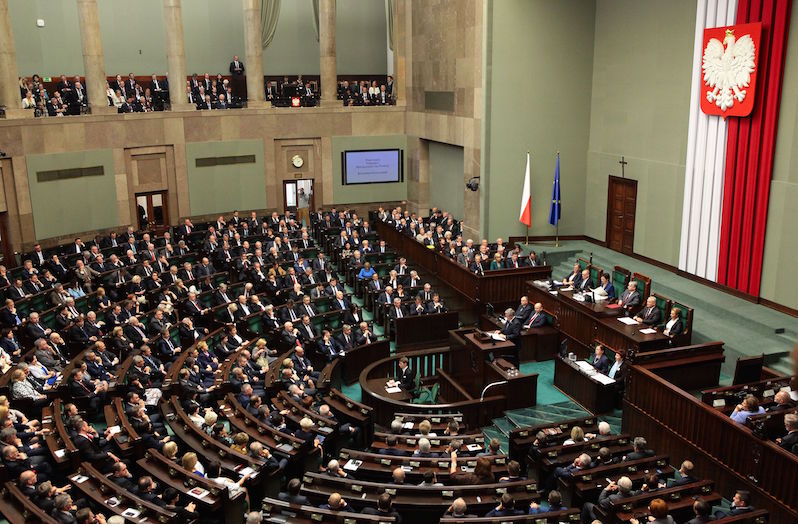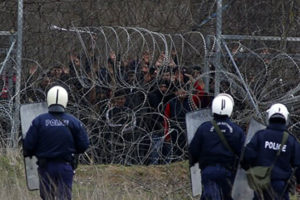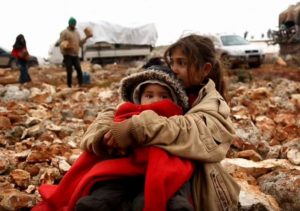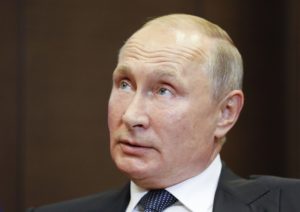The New European Fascists
Poland offers a frightening example of the right-wing populism sweeping through many nations Neoliberalism is wrecking economies, creating rage among the working class, devastating cultural institutions and eroding liberal democracy across Europe and in the United States Poland offers a frightening example of the right-wing populism sweeping through many nations. Government leaders in Poland are promoting a neofascist ideology. (Wikimedia Commons / CC BY-SA 3.0)
1
2
3
Government leaders in Poland are promoting a neofascist ideology. (Wikimedia Commons / CC BY-SA 3.0)
1
2
3
Populist ideologies sweeping across Europe call for the redistribution of “power, prosperity and dignity,” all of which have been taken from the working class by neoliberalism, Kurski said. “And we saw what such ideologies did to Europe in the 1930s. They led to war.”
The Warsaw Rising Museum, dedicated to the failed 1944 armed uprising by the Home Army (AK) against the Nazis that left 200,000 Poles dead and saw the center of Warsaw razed, is the cornerstone of the rewriting of history and the state hagiography of the nation’s martyrdom. It was opened in 2005 as part of what is called the “repolonization” of the country. Schoolchildren and youth groups are bused from across the country for tours. The museum does not acknowledge Polish anti-Semitic crimes.
The museum was in part a reaction to Gross’ book “Neighbors,” published in 2000 in Poland. It told the story of Catholic Poles in the town of Jedwabne who on July 10, 1941, murdered their Jewish neighbors. The number of dead, including women and children, slaughtered with clubs, knives and axes or burned alive, was in the hundreds. And there were dozens of similar massacres of Jews by their Polish neighbors. The houses of the murdered Jews were plundered immediately. For decades, the killings were officially blamed on the German occupiers. Now, the public airing of these crimes has shattered the myth in Poland that Poles were solely heroic victims of the war. The nationalists have attacked the veracity of the accounts and called their publication an unforgiveable humiliation.
In the museum I walked past display cases of weapons and uniforms spread out over three dimly lit floors. I listened to the recorded sound of gunfire and watched the video interviews with former soldiers and other participants. The symbols of Catholicism and the Polish state were fused in display after display. There was a room dedicated to child martyrs wearing oversized helmets and clutching weapons. There were replicas of graves of the fallen. And there was a video of Pope John Paul II, who was Polish, likening the failed Warsaw uprising to the crucifixion of Jesus.
Only on the third floor, tucked away from the main exhibits, was there an oblique reference to Poland’s sinister past. It was a video interview with Marek Edelman, the deputy commander of the 1943 Warsaw ghetto uprising, who also fought in the 1944 uprising of Warsaw. He said he and other Jewish survivors from the ghetto were forced to fight alongside fringe elements of the Communist armed resistance during the 1944 uprising because the AK, now sanctified in the museum, did not accept Jews and refused to give them weapons. He mentioned a Jewish fighter who approached the AK and was shot dead. He said he went into hiding after the AK’s surrender to the Germans because the Polish commanders refused to guarantee that he and the other Jews would not be turned over to the Nazis. This, he said with stunning understatement, was “unfortunate.”
“Jewish citizens were treated by Catholic Poles as foreign elements, if not outright enemies,” said Elzbieta Janicka, a cultural anthropologist and author at the Institute of Slavic Studies, Polish Academy of Sciences. “Polish majority stances and behaviors proved to be an important factor within the German machinery of extermination. Sealing it, they made the extermination complete and irrevocable.”
But this truth about Polish history has been reburied with the rise of Polish right-wing populism. And the binary view of the world, split between the noble Poles and the evil Nazis, is being revived today.
“There is no such thing as human nature,” Janicka said to me. “Human nature is culture. It is a product of education. When you construct an educational system and a public discourse where there is an almost total lack of critical, analytical thinking, where you refuse to strengthen individual human beings capable of autonomous judgment, human beings aware of their experiences and feelings, responsible for their deeds and relationship to the other, you destroy what is fundamental to an open society. It becomes exclusively about collective image, meaning collective narcissism. Liberal pluralism from this perspective is viewed as moral relativism or nihilism. There is a clash in Poland between the formal and legal frame of liberal democracy and the majority dominant culture.
Your support is crucial…
SUPPORT TRUTHDIG
With an uncertain future and a new administration casting doubt on press freedoms, the danger is clear: The truth is at risk.
Now is the time to give. Your tax-deductible support allows us to dig deeper, delivering fearless investigative reporting and analysis that exposes what’s really happening — without compromise.
Stand with our courageous journalists. Donate today to protect a free press, uphold democracy and unearth untold stories.






You need to be a supporter to comment.
There are currently no responses to this article.
Be the first to respond.